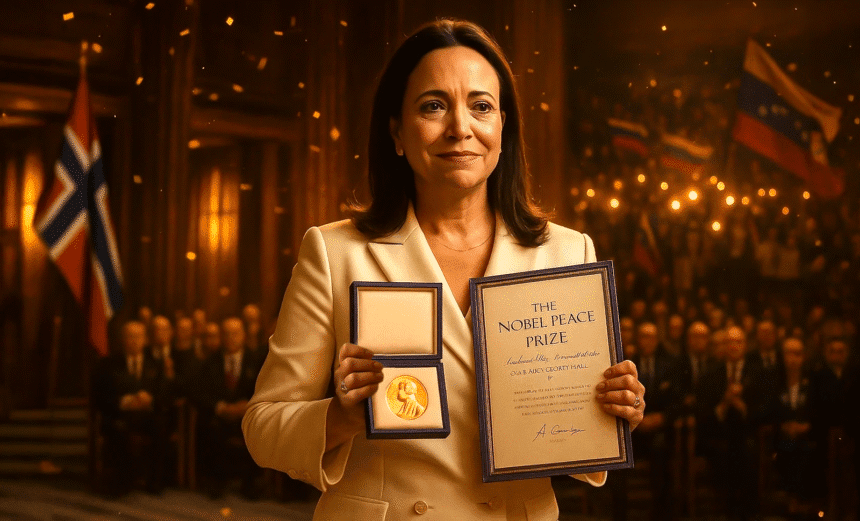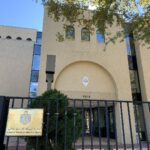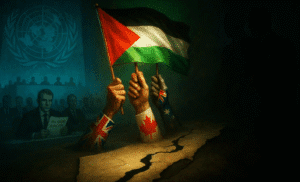In a moment of historic significance, the Norwegian Nobel Committee announced on October 10, 2025, that Venezuelan opposition leader María Corina Machado has been awarded the 2025 Nobel Peace Prize. The decision, made in Oslo, Norway, marks the first time a Venezuelan has received this prestigious honor. The official Nobel ceremony is scheduled for December 10, 2025, at Oslo City Hall, where Machado will be formally recognized for her exceptional dedication to democracy and human rights in Venezuela.
According to the Nobel Committee’s statement, Machado was chosen “for her tireless work promoting democratic rights for the people of Venezuela and for her struggle to achieve a just and peaceful transition from dictatorship to democracy.” The Committee described her as “a brave and committed champion of peace”, noting that she has kept “the flame of democracy burning amid a growing darkness.” The award recognizes not only her political resilience but also the courage of countless Venezuelans who have continued to demand freedom and fair elections despite severe government repression. The Committee emphasized that peace cannot exist without democracy, accountability, and respect for human dignity; values Machado has championed for decades.
Born in Caracas in 1967, María Corina Machado studied industrial engineering and entered politics through civic activism. She co-founded Súmate, a civil association devoted to monitoring elections and promoting democratic participation, before founding her political party Vente Venezuela in 2012. Machado served in Venezuela’s National Assembly between 2011 and 2014, emerging as one of the most outspoken critics of President Nicolás Maduro’s authoritarian rule. Over the past decade, she has faced persecution, bans from public office, and even threats to her life, yet she continued to mobilize opposition forces and push for free elections. In 2024, she was barred from running in the presidential elections, a move widely condemned as politically motivated, but she threw her support behind substitute candidate Edmundo González, whom many international observers recognized as the rightful winner based on independent tallies led by Machado’s team.
At the time of the Nobel announcement, reports indicated that Machado remained in hiding within Venezuela due to security concerns. Still, her reaction to the award was deeply emotional. “Oh my God… I have no words,” she said during a phone call with the Nobel Committee, moments after hearing the news. The Committee later released a video of the exchange, which quickly went viral, symbolizing a moment of hope for millions of Venezuelans. The Peace Prize, which includes a gold medal, diploma, and a monetary award of 11.1 million Swedish kroner (approximately $1 million USD), honors her enduring commitment to nonviolent resistance and civic empowerment in the face of dictatorship.
Although the full list of nominees remains confidential for fifty years, experts speculate that other contenders for the 2025 Peace Prize included figures involved in global peacemaking efforts, such as those mediating the Middle East ceasefires. Nevertheless, the selection of Machado was seen as a bold statement by the Nobel Committee in favor of democracy movements under threat. Analysts noted that by honoring her, the Committee reaffirmed the principle that peace and democracy are inseparable, a timely message amid rising authoritarianism worldwide.
Reactions to the announcement were swift and polarizing. The United Nations Human Rights Office hailed the award as “a recognition of the clear aspirations of the Venezuelan people for free and fair elections.” Leaders from across Europe and Latin America congratulated Machado, calling the prize a victory for civic courage and regional democracy. However, Venezuela’s Maduro government dismissed the decision as “foreign interference,” and state-run media largely ignored the story. In the United States, political reactions were mixed: supporters in Congress praised the Nobel Committee’s decision, while some critics accused it of politicizing the award. In a surprising gesture, Machado dedicated her prize to “the suffering Venezuelan people” and to “all those, inside and outside the country, who have kept faith in our fight for freedom.”
The implications of the award reach far beyond Venezuela’s borders. For many observers, it serves as a powerful symbol of hope for nations struggling against authoritarianism. It underscores the idea that moral strength and peaceful defiance can have global resonance even when political conditions seem dire. Yet others caution that the Nobel recognition may heighten tensions within Venezuela, potentially prompting harsher crackdowns on the opposition. Whether it becomes a catalyst for dialogue or repression remains to be seen, but one thing is certain: the Nobel Peace Prize has once again turned the world’s attention to a nation yearning for democracy.
As the world awaits the Oslo ceremony in December, Machado’s win stands as both an honor and a challenge. It celebrates her resilience and integrity, but also reminds the international community of Venezuela’s ongoing democratic crisis. For millions of Venezuelans, her Nobel Prize is more than a personal victory; it is a symbol of their collective struggle for justice, dignity, and peace.















